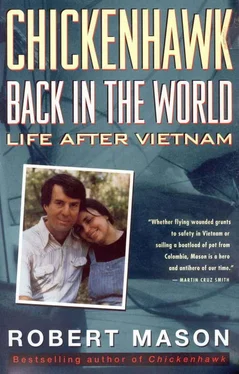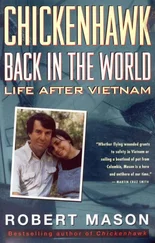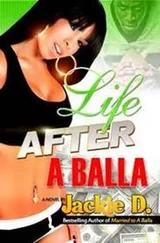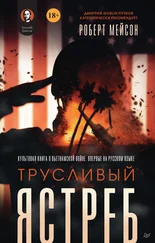If you were not a troublemaker like Mike, they usually gave you a legal furlough and let you fly to wherever you had to go. Mike had pissed off too many people; the prison elected to send him by bus to New York. Normally that might take a few days. But when diesel therapy was prescribed, the route was not direct. They switched you from one bus to another, making your trip an arduous zigzag tour of the whole country with extended visits at county jails while you waited for the next connection. John said they’d put Mike on the bus two days ago to make his court date in six weeks. Mike would be spending his days on a prison bus, in handcuffs, his nights in one squalid county jail hole after another. I figured it was justice.
At work one day, we heard that Tony Abruzzo had a heart attack while playing tennis. They shipped him to Lexington, to the Bureau of Prison’s main hospital. We heard he was doing okay, but he’d miss the big talent show, the Eglin Frolics.
The inmates had built a stage across the salad bar and set some patio clamp lights up all around it. It was standing room only when I got there. I sat on the low serving-line wall with John Tillerman. Everybody was hooting and waving, having a great time. I saw Red the counterfeiter sitting with Joe the materials engineer. Red told everybody he was here for making his own money. He owned a print shop and got curious about how they printed money one day. He went to a bank and, as a businessman, asked them how he could detect counterfeit bills. They told him how and gave him a pamphlet about it. Red took this information and started making money that’d pass. His money wasn’t a work of art, he said. The bills all had the same serial number. He claimed it didn’t matter. The secret, Red said, was to condition the money so it looked circulated. He’d come up with just the right mixture of dirt and oil and stones that he dumped into a washing machine with his freshly minted hundred-dollar bills. A couple of hours later, he said, the bills looked like they’d been in circulation for years. He sold this handmade money to people for twenty to forty cents on the dollar and made real money. He told me he knew he’d be caught eventually, but he’d been saving up for it.
I seldom got to see everybody in one place like this. Joe the engineer listened to Red for a while and then turned to argue with Chuck, another engineer. Chuck and Joe had fundamental disagreements about stuff I didn’t understand. Each one thought the other was a quack. Joe was in materials; Chuck was a mechanical engineer. Chuck was also designing an airplane. I had seen the model he made in the woodshop, and it looked like it would work as a full-sized plane. He was having his kid run computer programs at home to design the airfoils for the wings. He was not joking. He said he was going to build it when he got out, and I had no doubt he would.
The show was late to start. The inmates were loud, yapping happily. I looked around for more people I knew. I knew a lot of inmates and I knew all their stories. They came to me with them. That guy, sitting two guys down from Red. Danny? Danny something. He shouldn’t be here. He should get an award for what he did.
Danny was a pilot, in his late twenties. He had been approached by two guys who asked him if he wanted to make a hundred thousand dollars for one flight. Danny was nervous, but he listened. They said, “Look, we’re not bullshitters with some junky plane. We have a DC-6 that’s like new. We need a good pilot and we hear you’re great. Take it for a ride, check it out, see what kind of equipment we have.” Danny did. He told me the plane was in first-class shape. When he landed, the two guys gave him ten thousand in cash as a down payment.
Danny went home, told his wife what he was thinking of doing. They stayed up all night talking about it and the next morning he found the two guys and gave them their money back. No deal, Danny told them, something I should’ve done.
A year later Danny was arrested. The two guys were DEA agents. Danny’s crime was that he failed to inform the authorities about the offer these men made. That’s conspiracy. He got five years.
The guys were chanting, “Start the show! Start the show!” The hacks were smiling, getting into the spirit of the thing. I saw Simpson, my old boss from my landscape days. He was not smiling—looked a little anxious, in fact. He and I had become friendly since he was no longer my boss. He looked at another hack seriously, but the hack just smiled. The place was looking like a riot to Simpson, I guess.
Simpson had come to Eglin from Marion Prison. Marion is the only prison in the system with a level six section. The most vicious, the vilest, the most heinous criminals our society produces all live in perpetual lock-down in cages at the level six section at Marion. Simpson once told me he still had a hard time seeing inmates wandering around loose. He’d jump if you came up behind him.
Simpson was on a detail one day at level six with two other guards. They were to escort a completely insane murderer to his daily shower. The inmates at level six get an hour a day out of their cells for a walk in the halls and a shower, all under heavy guard. The guards are not armed because weapons could be taken away and used against them. This murderer, Simpson said, used to call the guards filthy names the whole time, but they ignored him. Part of the job. This day, however, the guy had a surprise. He was standing in his cell holding a towel wrapped around his waist, ready for his shower. They let him out. They did not search him. As the guy walked by one of the guards, Simpson’s friend, he dropped the towel, exposing a three-foot piece of broomstick. He’d sharpened one end of the stick, and in one blurred move, Simpson said, he jammed the stick up into his friend’s belly with both hands. Simpson said he shoved it up deeper and deeper, forcing it up into his friend’s chest while all the guards beat him wildly with their clubs. He said the guy didn’t notice, just kept screaming and shoving that stick deeper. When Simpson’s friend collapsed in the hall, a bloody mess, the guy stood up straight and laughed like crazy. “Guards zero! Inmate two!” the guy screamed. He’d killed a guard once before. There wasn’t a federal death penalty for murder then, and the guy was already in for a couple of lives. They couldn’t do a thing about it. Simpson said he had to go tell his friend’s wife. I understood why Simpson was looking anxious. I wouldn’t want his job for anything. The hacks at Eglin had it easy, but they would eventually rotate to real prisons.
The inmate band—we had all sorts of musicians here—played an introduction. The chaplain’s assistant was the master of ceremonies. The first act was an inmate who played the guitar beautifully. We heard a singer, watched a tap dancer, and then a comedian who did impersonations of the hacks.
The last act. The chaplain’s assistant announced, “And now, ladies (a few female staff were present) and gentlemen—” he paused while an inmate drummer who had missed the cue started a drumroll, “the luscious, the vivacious, the beautiful—Coquette!” A single spotlight flashed on the stage. The band launched into a saucy bump-and-grind tune and into the spotlight leapt Ernest the black homosexual. I know I said they didn’t allow gay guys at Eglin, but I think they tolerated Ernest because he was just so damn open about it that nobody felt threatened. Ernest was always on. He was more effeminate than most women, and I’d seen him moan at guys he thought were attractive. The rednecks thought he was kind of bizarre, but they didn’t kill him—a testimony to Ernest’s charm.
Ernest did the best striptease act I’ve ever seen. He was wearing a mop for a wig and a costume of filmy cheesecloth. He whirled around with the music, swishing, tossing the veils into the crowd until he was down to a gold lame brief. It was so convincing, I forgot Ernest was a man. The crowd went wild.
Читать дальше












